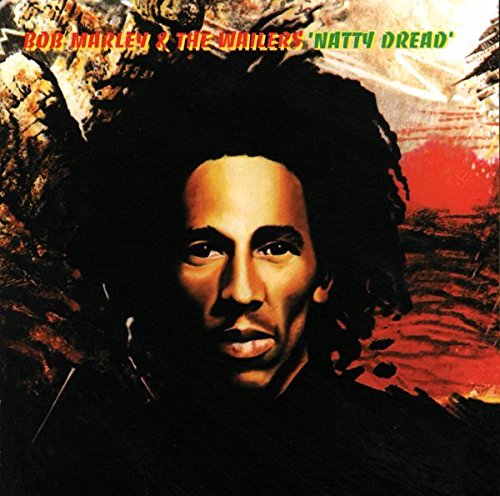103: NATTY DREAD | BOB MARLEY AND THE WAILERS
Natty Dread is the first album by Bob Marley and the Wailers, released in 1974. Previously Marley had recorded with Peter Tosh and Bunny Wailer as the Wailers, and this was his first record without them.
Natty Dread was most popularly received in the UK, where it peaked at No. 43 and sold in excess of 100,000 copies, making it a gold album. Over time it gained popularity in other parts of the world, and in 2003 it was ranked No. 181 on Rolling Stone magazine's list of the 500 greatest albums of all time.
Natty Dread is a spiritually charged political and social statement. It opens with a blues-influenced positive celebration of skanking, reggae and sex, "Lively Up Yourself". The original and still unreleased demo of the Island version of "Lively Up Yourself" was recorded in 1973.
"No Woman, No Cry", the second track, is probably the best known recording on the album. It is a nostalgic remembrance of growing up in the impoverished streets of Trenchtown, the ghetto of Kingston, Jamaica, and the happiness brought by the company of friends. The song has been performed by artists as diverse as Boney M. (sung by Liz Mitchell), The Fugees, Pearl Jam, Jimmy Buffett, Rancid and Gilberto Gil. Songwriting credit for "No Woman, No Cry" went to V. Ford. Vincent Ford, better known as "Tartar" to his friends and neighbors, had been a kind friend of Marley as a child in Trenchtown. Marley claimed he would have starved to death on several occasions as a child if not for the aid of Tartar. The original version of the song was in gospel style, featuring Peter Tosh and some unknown female backing vocals and was cut for Island in 1973.
"Them Belly Full (But We Hungry)" is a warning against allowing a nation's poor to go hungry, with the prophetic warning "a hungry mob is an angry mob", while "Talkin' Blues" and "Revolution" go deeper into controversial political commentary. "Rebel Music (3 O'Clock Roadblock)" is a reflection on the potential impact of reggae music on Jamaican society. The song was written after Marley had been stopped by a night-time police carcheck. The influence of Marley's increasing devotion to Rastafari can be heard in religious-themed songs like "So Jah S'eh", "Natty Dread" and "Lively Up Yourself", while Marley's reputation as a romantic is confirmed with smooth, seductive songs like "Bend Down Low". The title track of the album takes its title from an idealised personification of the Rastafari movement, Natty Dread. Article

